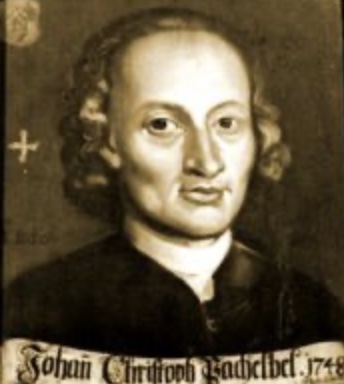
Johann Pachelbel was was born on September 1, 1653, in Nuremberg, a city in the Holy Roman Empire (now part of Germany). He came from a family of musicians, and his early musical education likely began with his father, who was a musician and wine dealer. Johann received his first formal musical training at the University of Altdorf and later studied under Heinrich Schwemmer and Kaspar Prentz.
He held various positions as an organist and musician in different cities, including Erfurt, where he served as the organist of the Predigerkirche. Throughout most of his life Pachelbel worked as an organist and composer, holding positions in various cities across Germany. His compositions represent a significant body of music, including chamber music, vocal music, and keyboard music. His most famous work, the Canon in D, is a prime example of his chamber music and to this day, it remains a popular choice at weddings, for its intricate counterpoint and melodic elegance, reflecting the style of the Baroque period.
Pachelbel is also known for his contributions to the development of the chorale prelude, a genre of organ music that elaborates on Lutheran chorale tunes. He composed numerous chorale preludes that remain prominent in the current repertoire.. His contrapuntal techniques and melodic inventiveness had a lasting impact on the development of Baroque style, and played a role in shaping the musical landscape of the time. His influence is evident in the works of later composers such as, Johann Sebastian Bach.
Johann Pachelbel passed away on March 3, 1706, in Nuremberg, at the age of 52. Though not widely recognized during his lifetime, his music gained popularity in the centuries that followed, and he is now regarded as one of the important figures of the Baroque era.
